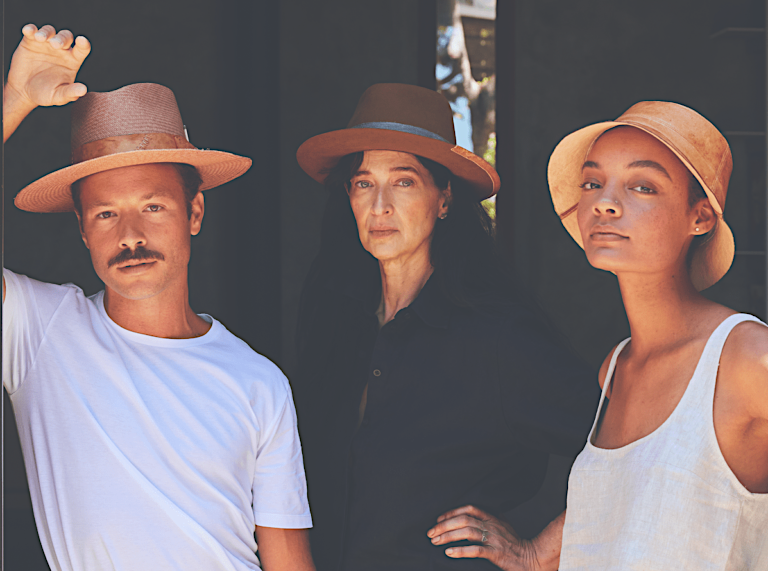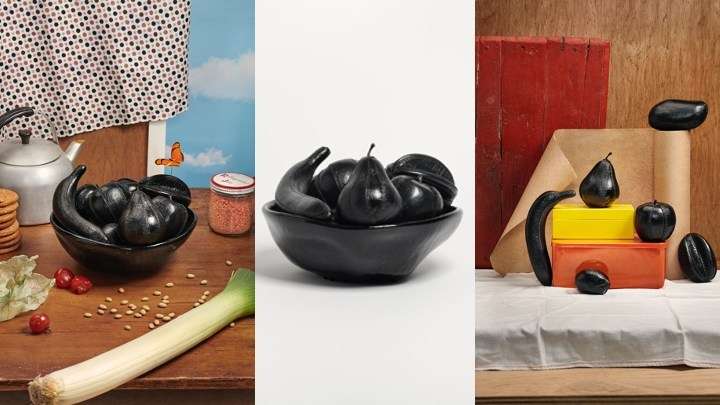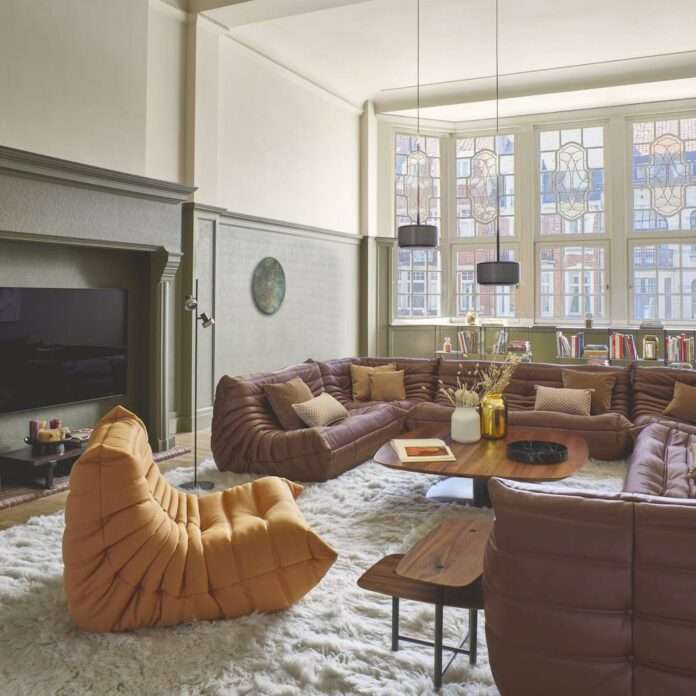The sustainable materials science company MycoWorks will bring its mycelium-based leather to luxury furniture maker Ligne Roset in a first for both brands.
For more than five generations, Ligne Roset has been a global leader in luxury leather-based furniture. The company, established in France in 1860, has spent the last two years working with MycoWorks to develop the first furniture made from its proprietary mycelium leather dubbed Reishi.
“We are proud to be the first to introduce Reishi into our collections and to the furniture design industry,” Antoine Roset, Marketing Director Groupe Roset, said in a statement. “We have been waiting for years for a natural, sustainable material that meets our quality standards and our customers’ expectations. We believe Reishi is the answer.”
A handful of companies are producing mycelium leather, and it has seen a growing number of luxury fashion labels work it into designs; Hermès and Stella McCartney brought mycelium to bags as did athleisure brand Lululemon. Balenciaga recently unveiled a coat made from mycelium. Others, like Nick Fouquet and Ganni have turned it into hats and wallets.

While other vegan leather options such as catcus and pineapple leather have seen more designs, mycelium may hold the biggest potential; its producers, which count producers including Bolt Threads, Sqim, and Ecovative alongside MycoWorks, say it best mimics the texture and performance of conventional animal leather — including in furniture.
“Decades ago, my co-founder Phil Ross and I explored using mycelium to create molded chairs and stools as part of our art practice,” said Sophia Wang, MycoWorks Co-Founder & Chief of Culture. “Furniture demonstrates the beauty, utility, and performance of materials. This partnership with Ligne Roset is a full circle moment for MycoWorks, validating that Reishi will be used in furniture design for years to come.”
Shifting new furniture toward sustainable leather options plays a crucial role in fighting climate change. Approximately ten percent of all leather is used in furniture. As a co-product of animals raised for food, leather contributes to agriculture’s large carbon footprint. The agricultural industry is responsible for about 15 percent of total emissions, with animal agriculture responsible for 60 percent of the industry’s emissions.

Leather brings other issues beyond just its source material; leather tanning is notoriously dangerous with workers in countries such as India, routinely exposed to high levels of toxic chemicals. These chemicals also pollute waterways, land, and air, threatening biodiversity and carbon sequestration.
Ligne Roset’s first of what it says will be “many Reishi products” is a limited-edition pair of pillows, which will be available for purchase in 2023.
The launch announcement comes just days after artist, creative director, and designer Heron Preston debuted an art piece, A Fruit Bowl by Heron Preston for MycoWorks, that he says is inspired by and designed with MycoWorks’ Reishi.
“A fruit bowl is usually one of the first objects that painters depict to demonstrate their skills and understanding of the medium. And this is an exercise on how this material (Fine Mycelium), through my lens is getting its start – as a fruit bowl,” Preston said in a statement. “A material with endless possibilities and applications, like a painting. The fruit made of Fine Mycelium messages new beginnings and a future not bound by our past, but pushed forward through our imagination and human ingenuity; a breakthrough in materials science and biotechnology.”

Preston and MycoWorks say this is the first of many designs the artist will make with Reishi next year. The art will be available exclusively on Preston-led digital platfrom launching early next year.
“Given MycoWorks’ roots in art, this partnership with Heron Preston represents our company’s enduring values of thoughtful design and aesthetics, wide-ranging inspiration, and visionary imagination,” Wang said. “Over the last decade, MycoWorks has grown to over 160 employees and produces tens of thousands of sheets of material per year, but these values have and will always hold true.”
In August, MycoWorks broke ground on its first full-scale production facility, following an oversubscribed $125 million Series C funding round. It also recently announced a partnership with General Motors’ GM Ventures.
“Our strategic investment in MycoWorks aims to advance the development of sustainable automotive materials,” Wade Sheffer, managing director of GM Ventures, said in a statement. “This collaboration will help facilitate R&D efforts and build more sustainable alternatives for our designers.”
“Working with General Motors to introduce Fine Mycelium to the automotive industry is an enormous step forward in the global new materials revolution,” said Matt Scullin, CEO of MycoWorks. “MycoWorks’s collaboration with GM is a first for us outside of the fashion industry, demonstrating the enormous potential and applications for Fine Mycelium.”
Related on Ethos:


